Martial Art
Wushu is a technology inherited from ancient military wars. Martial arts can strengthen the body and defend the enemy. The people who practise martial arts are guided by technology and lead the practitioners into the traditional way of enlightenment (martial arts) to understand the objective laws of man and nature and society, which is the direction and guarantee of human material civilization.
Wushu has the power to stop and fight and maintain peace. As the survival skills of the descendants of the Chinese nation, Chinese traditional Wushu has gone through thousands of years of storms and hardships along with the development of Chinese history and civilization. It has become the soul to maintain the survival and development of the nation, and the soul to carry the genetic composition of Chinese children. Wu is the strength to safeguard its own safety and interests. We practice martial arts, so that we can be promoted from body to heart, from soul to soul, and full of security, spiritual strength, with the strength of self-defeating. This is a magic weapon that has been precipitated and settled in the past dynasties.
On June 22, 2015, in the working meeting of the Organizing Committee of the "Selection Conference of Substitute Competition Items Proposed by the Host City of the Tokyo Olympic Games in 2020", held in Tokyo, Japan, eight items were selected as candidate items for the Tokyo Olympic Games in 2020, including martial arts.
On September 28, 2012, the Organizing Committee of the "Tokyo Olympic Games 2020" announced that they would submit to the International Olympic Committee a list of new project nominations. Wushu is not among the five nominated projects, which means that the Wushu project will not be eligible for the Tokyo Olympic Games 2020.
Performing arts, before the appearance of the movie, was mainly presented in the form of stage drama. The predecessor of Chinese opera was Chinese opera. The term "opera" was first used in history by Song Liu-cheng (1240-1319) and then by Yuan (1271-1368), Tao Zongyi, a native of the Yuan Dynasty, dropped farming in Nancun, and Wei Liangfu, a Ming Dynasty, a quotation of Nanci. It is worth noting that Chinese drama began to flourish in the Yuan Dynasty since the beginning of the Yuan Dynasty.
The imperial examination system (including literary and military examinations) was stopped in the Yuan Dynasty. The rulers of the Yuan Dynasty had a low level of Chinese, but they were very happy to see the theatre. As a result, the literati who wanted to take the examination did not go out and went to the street acrobatics and theatre troupes to write scripts to make a living. Among them, a large group of people, such as Hanqing, Wang Shifu, Ji Junxiang, and Ma Zhiyuan, who wrote The Orphan of Zhao, as well as the martial arts instructors of Yuan Zaju, made Chinese opera (a combination of folk songs and dances, rap and comedy) rapidly become one of them. Chinese drama consists of literature, music, dance, art, martial arts, acrobatics, etc. As a result, the dramas produced in the Yuan Dynasty quickly caught up with the tragedies of ancient Greece and Sanskrit operas of ancient India, and made up for the deficiencies in the comparison between Chinese dramas and world dramas; Especially the Zaju of the Yuan Dynasty, it spread widely and rapidly among the people.
Among them, the warriors who were responsible for the guidance of martial arts in Yuan Zaju would not let the Yuan people learn the real Chinese martial arts. (Which nationality would invade its foreign enemies by going to Baibai Church? No fool! As a result, these Wuzhi opera troupes and shelves moved to Beijing opera, and gave them the name of "Wushu" to entertain the Yuan Dynasty, which is good-looking and happy. This is what many people see on the stage now. The practitioners of Chinese Wushu know that these flower shelves used only for performance have little to do with the "Wushu" itself, and even the purpose of "Wushu" is intentionally reversed. Drama (Drama), the battle of hog. It's good looking. It's used for teasing people.
Because operas and dramas are widely spread among the people, and real Wushu has always belonged to the Royal noble and secret skills, so it is difficult for the people to get a glimpse of real Wushu (panoramic); and later, the film art spread "Chinese Wushu" and "Chinese Kungfu" widely, so that routines and performing "Wushu" among the general public. The impression of being preconceived has led to the performance and routines of modern Chinese martial arts.
However, among the people, there have always been groups practicing Chinese traditional martial arts. They still adhere to the traditional ethics of non-performance and non-competitive, restrained and respectful, and widely spread among the people.
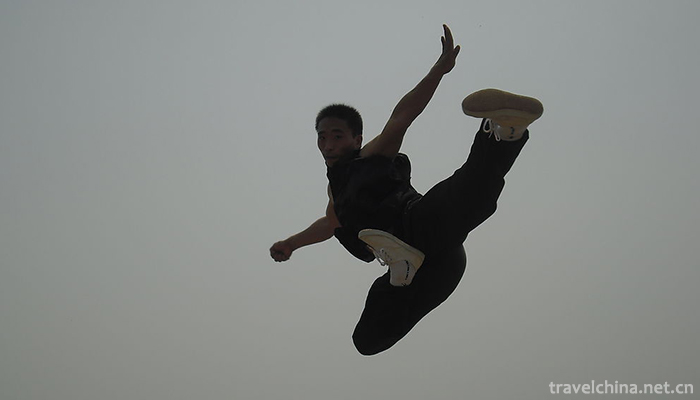
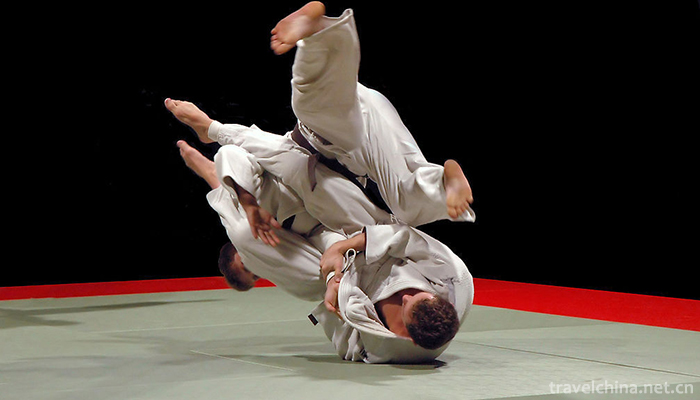
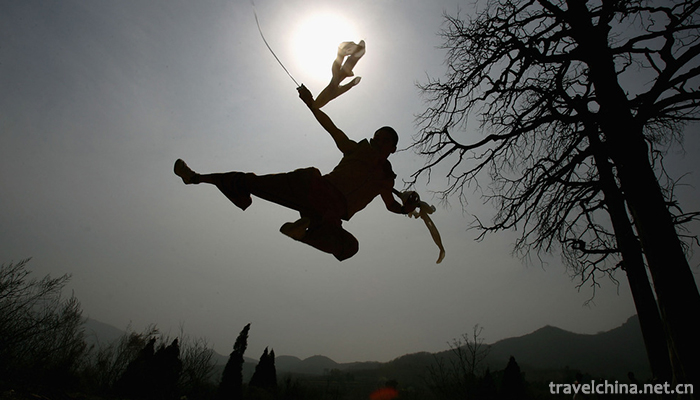
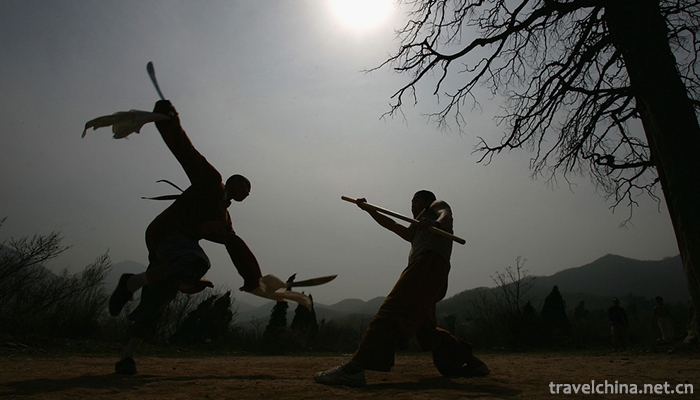
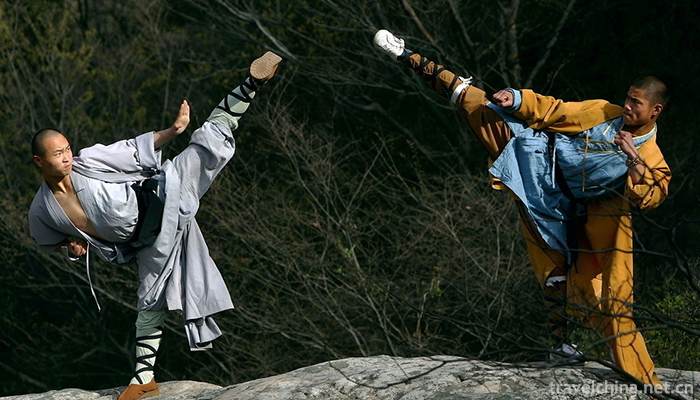

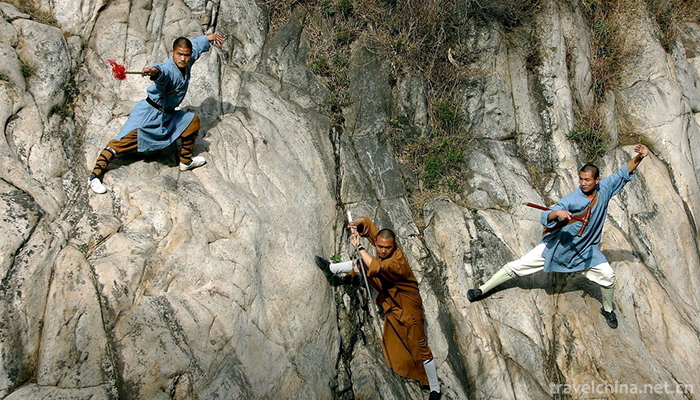
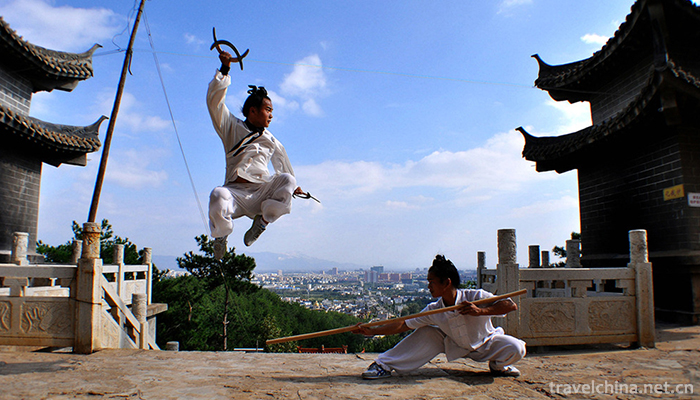
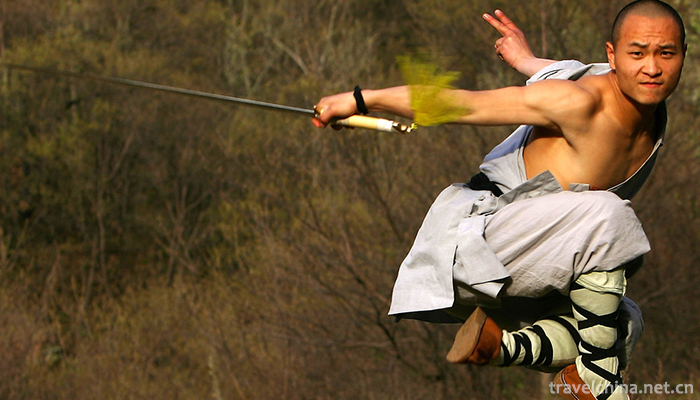
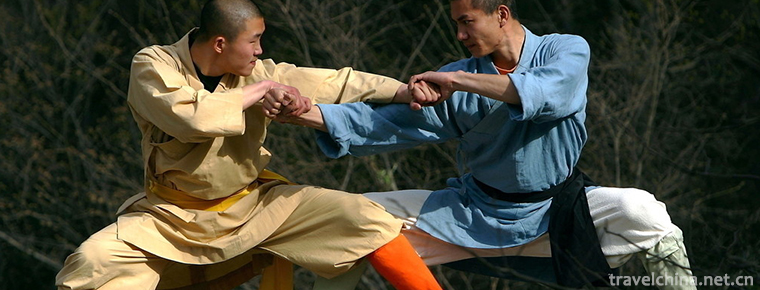
-
2.Shantou beef ballTime 2018-11-02
-
3.Soup with pepper
Soup with pepper, a well-known snack in Central Plains, originated in Xiaoyao Town, Xihua County, Zhoukou City, Henan Province, and Beiwudu Town, Wuyang County, Luohe City. Especially known as Xiaoyao
Time 2018-11-10 -
4.Seven Stars Scenic Spot
Seven Stars Scenic Spot/Qixing Scenic Spot is located on the East Bank of Lijiang River in Guilin City, along Xiaodong River, a tributary of Lijiang River, 1.5 kilometers away from the city center.
Time 2018-12-17 -
5.legend of butterfly lovers Liang Zhu
Legend of Liang Zhu (Legend of Liang Shanbo and Zhu Yingtai) is a sad and moving love story. It is also called four ancient Chinese folklores with Meng Jiangnu, Niulang Zhinu and White Snake Biography
Time 2018-12-23 -
6.Eight Zhai ditch
Bazhaigou, located in Dongli Village, Guitai Town, the hinterland of 100,000 mountains, more than 50 kilometers northwest of Qinbei District, Qinzhou, Guangxi Zhuang Autonomous Region
Time 2018-12-24 -
7.Kirgiz embroidery
Kirgiz embroidery is a traditional embroidery in Wensu County, Xinjiang Uygur Autonomous Region, China. Kirgiz women are good at embroidery. They embroider various delicate patterns on headscarves, pi
Time 2019-05-09 -
8.Miao folk songs
According to its content, Miao folk songs can be divided into Youfang song (love song), wine song, bitter song, anti-song, funeral song, labor song, political song, children's song, riddle song and so
Time 2019-06-05 -
9.Brewing Techniques of Shaoxing Yellow Rice Wine
Shaoxing has a long history of brewing wine, which can be traced back to the Spring and Autumn Period and the Warring States Period. By the time of the Northern and Southern Dynasties, it was well-kno
Time 2019-06-14 -
10.Yunnan Mengzi Crossing Bridge Rice noodles guo qiao mi xian
"Crossing bridge rice noodles" is a unique food in southern Yunnan. It originated in Mengzi City, Hani and Yi Autonomous Prefecture of Honghe. It has a history of more than 100 years. It wa
Time 2019-07-16 -
11.Ding Zhen from the plateau Village
The 20-year-old Tibetan boy is from a small mountain village in Litang County, Ganzi Tibetan Autonomous Prefecture, Sichuan Province. More than 20 days ago, a photographer released a short video on the short video platform, which made Ding Zhen
Time 2020-12-07 -
12.Climate of Nanchong
Nanchong belongs to the subtropical humid monsoon climate. Compared with the Yangtze River Valley in the south of the basin, the temperature is relatively low, the rainy season is longer and the rainstorm is more. Compared with the Western Sichuan plain
Time 2020-12-17